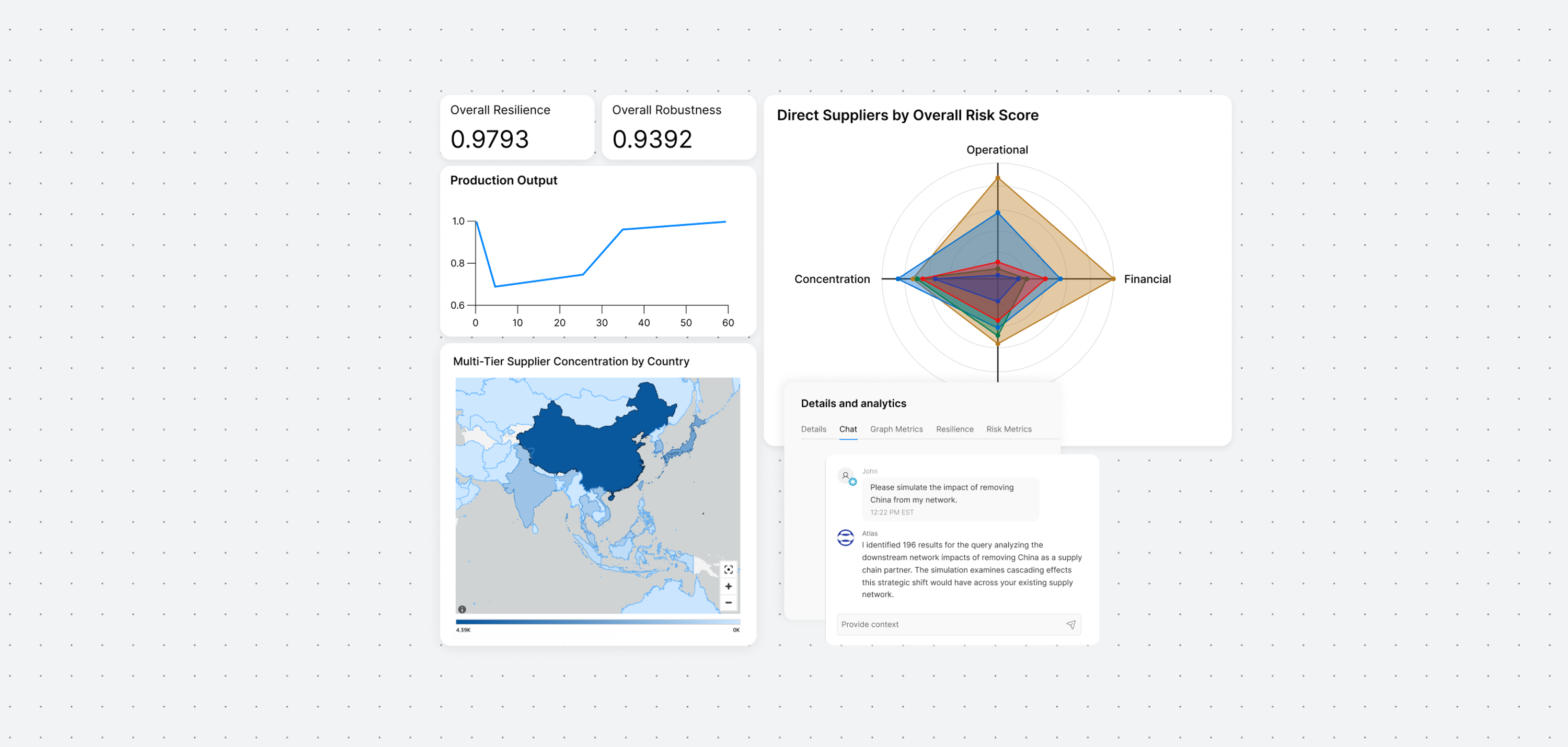
Connecting businesses and governments to strengthen supply chain resilience
Economic security analysts, defense procurement officers, and resilience managers face vast, complex supply chains but are forced to piece together fragmented, incomplete data across siloed systems. This slow, manual process creates critical blind spots around concentrations, chokepoints, and foreign ownership, leaving policymakers and industry reactive — unable to anticipate disruptions or secure the networks they depend on.
Altana's connected, current network of global trade — from entire industry networks down to individual companies and transactions — helps businesses and governments uncover vulnerabilities and strategic opportunities, predict and simulate the impact of disruptions or policy changes, and collaborate to build secure, resilient supply chains.


Real-world results
Stronger resilience happens on the network
280+ Average bottleneck dependencies discovered
90+ Average critical single-source risks identified
85%+ Acceleration in supply chain analysis
A network solution
A common operating picture of products and how they flow across trade lanes helps businesses and governments build resilience
Identify low-risk suppliers, diversify geographic concentrations, eliminate bottlenecks, reduce adversarial dependencies, and make informed sourcing decisions.
Importers
Map and analyze supply chains at scale to spot risks, model disruptions, and act with industry and policymakers to secure and strengthen critical networks for resilience and readiness.
Governments
Map multi-tier dependencies, mitigate risks, diversify sourcing, ensure compliance, and collaborate with customers to strengthen continuity and trust.
Suppliers
Remediate compliance risk and accelerate customs entry filing to ensure timely and consistent cross-border trade for your clients..
Logistics providers
Value chain design
Build and manage resilient value chains by strategically selecting low-risk suppliers, diversifying geographic concentrations, eliminating bottlenecks, minimizing dependencies on adversarial entities, and making informed sourcing decisions to strengthen continuity, security, and operational resilience.
Network analysis
Map industries and value chains to spot concentrations, bottlenecks, and foreign control. Drill from a macro view of an entire network down to transaction-level insights and collaborate to secure critical supply chains.
Policy & disruption modeling
Simulate the ripple effects of disruptions and policy changes across industry and industrial base networks. Collaborate with policymakers and industry to mitigate these vulnerabilities and ensure continuity of critical goods and operations.
Wargaming
Model the cascading impacts of conflict across defense supply chains to stress-test critical nodes, ensure uninterrupted supply, and maintain operational readiness under adverse scenarios.
Sustainment planning
Predict and simulate disruptions across defense value chains, enabling informed decision-making and sustained operational readiness.
Strengthen economic security
Map and monitor the multi-tier value chains of entire industries, predict and simulate disruptions, and collaborate with policymakers and industry to mitigate risks, protect critical sectors, and drive competitive advantage.







